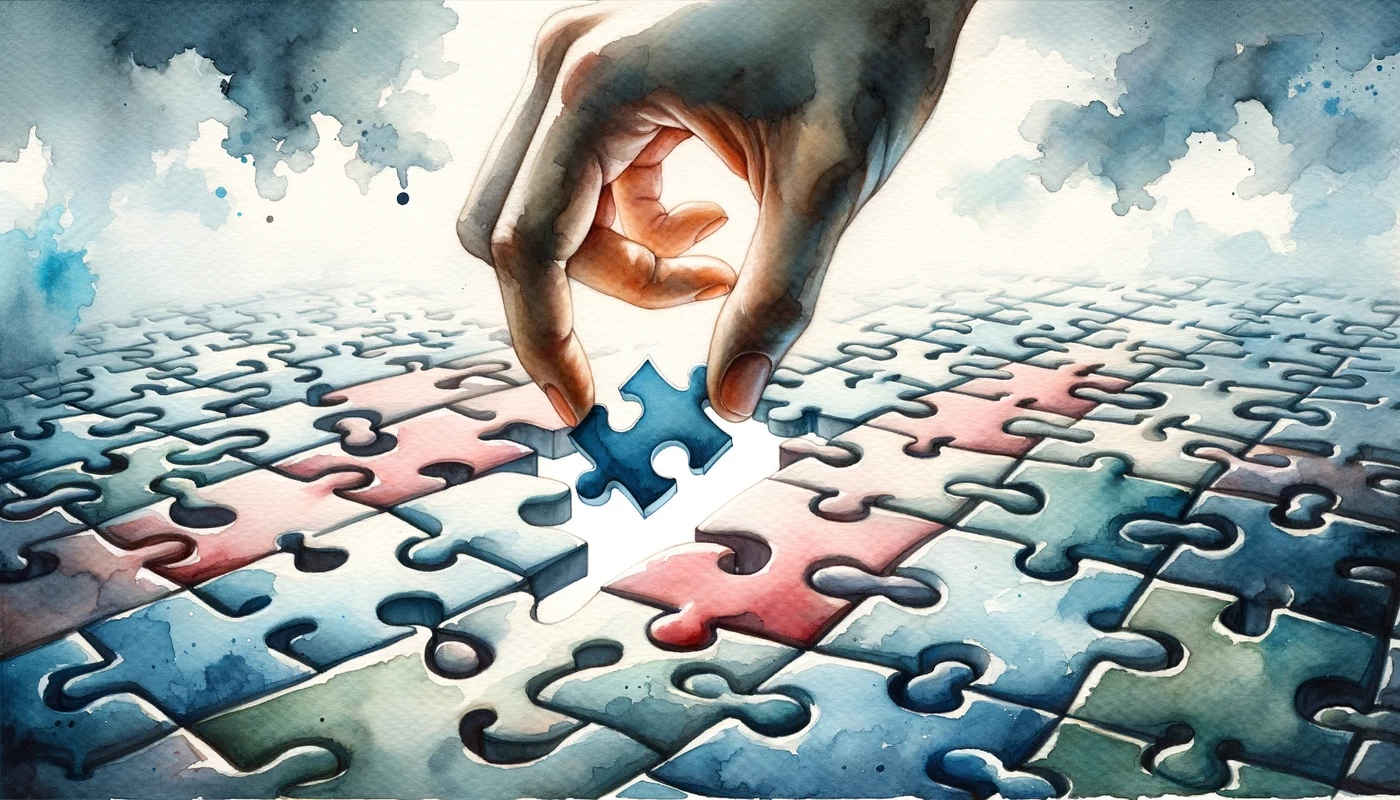The Seven Essential Life Skills Every Person Needs
The Seven Essential Life Skills Every Person Needs
Introduction
Personal development is a lifelong journey that allows individuals to grow, evolve, and thrive in various aspects of their lives. It encompasses improving oneself mentally, emotionally, socially, and professionally.
At the heart of personal development lies the acquisition and mastery of crucial life skills. These skills serve as the building blocks upon which we construct fulfilling relationships, navigate challenges, achieve success, and ultimately lead a meaningful existence.
The Importance of Life Skills in Personal Development
Life skills are like the Swiss Army knife of personal growth – they equip us with the tools necessary to navigate through life’s myriad challenges effectively. They go beyond academic knowledge or technical expertise and encompass a range of abilities that enable us to function optimally in both our personal and professional lives. Without these essential life skills, we may find ourselves ill-equipped to handle complex situations or adapt successfully to changing circumstances.
These skills form an integral part of personal development because they empower us to communicate effectively with others, think critically and creatively about problems, manage emotions appropriately, adapt to new situations gracefully, and bounce back from setbacks with resilience. In essence, life skills act as a solid foundation upon which we can build a fulfilling and successful life.
Overview of the Seven Essential Life Skills
To embark on this journey towards personal development armed with the right set of tools, it is crucial to understand what these essential life skills encompass. The following seven skill sets form the crux of personal growth:
- Communication Skills: The ability to express oneself clearly through both verbal and non-verbal means while actively listening empathetically.
- Critical Thinking: Cultivating analytical thinking prowess coupled with creative problem-solving techniques.
- Emotional Intelligence: Mastering self-awareness while empathizing with others’ emotions for nurturing strong interpersonal relationships.
- Adaptability & Resilience: Developing flexibility in embracing change while managing stress effectively.
- Time Management: Skillfully organizing and prioritizing tasks to optimize productivity and achieve work-life balance.
- Decision Making: Making informed choices by evaluating options, considering consequences, and assessing risks.
- Financial Literacy: Understanding the basics of personal finance to make sound financial decisions and secure a stable future. By mastering these seven essential life skills, individuals can enhance their overall personal development and pave the way for a more fulfilling and successful life journey.
In the coming sections, we will delve deeper into each of these skills, exploring their nuances, benefits, and practical tips for their cultivation. So let’s embark on this transformative voyage together!
The Art of Effective Expression
Verbal Communication: Mastering the Power of Words
When it comes to effective communication, mastering the power of words is paramount. It’s not just about having a vast vocabulary or stringing together verbose sentences; it’s about using language to convey ideas, thoughts, and emotions with clarity and impact. Active listening plays a crucial role in this skill set as well.
Actively listening means giving your full attention to the person speaking, taking in their words while also understanding their underlying emotions and intentions. Empathy is another vital component here – putting yourself in someone else’s shoes enables you to connect on a deeper level and respond with compassion and understanding.
Public Speaking and Presentation Skills
Public speaking can be an intimidating prospect for many individuals, but it is an invaluable skill worth honing. Whether you’re addressing a small group or presenting to a large audience, effective public speaking skills can make all the difference. The ability to captivate listeners with your words, engage them through vivid storytelling or persuasive arguments, and maintain their attention throughout your presentation are key elements of successful public speaking.
Additionally, mastering body language is crucial for engaging an audience fully. Your gestures, facial expressions, posture – they all contribute to how your message is received by others.
Decoding Body Language: Understanding Non-Verbal Cues
Beyond verbal communication lies the fascinating world of non-verbal cues – body language. Understanding gestures, facial expressions, and posture can offer valuable insights into someone’s thoughts and feelings that may not be explicitly expressed through words alone.
For instance, crossed arms might indicate defensiveness or discomfort while maintaining eye contact indicates attentiveness and interest. By becoming adept at interpreting these non-verbal cues accurately, you can enhance your emotional intelligence – the ability to understand others’ emotions better.
By paying attention to both verbal and non-verbal forms of communication, we can become more effective at expressing ourselves and truly understanding others. These skills are essential not only in our personal relationships but also in professional settings where clear and impactful communication can drive success.

Critical Thinking: Nurturing Your Inner Sherlock Holmes
Analytical thinking: breaking down complex problems
When it comes to tackling complex problems, analytical thinking is your secret weapon. It involves the ability to dissect a problem into its fundamental components and analyze each part independently. By doing so, you gain a deeper understanding of the issue at hand and can generate more effective solutions.
This includes identifying any underlying patterns or relationships that may exist within the problem, as well as recognizing any relevant constraints or limitations. Analytical thinking allows you to approach challenges with a clear and structured mindset, enabling you to make more informed decisions.
Identifying assumptions and biases
In the pursuit of critical thinking, it is crucial to be aware of our own assumptions and biases. Our experiences, beliefs, and cultural backgrounds shape our perspectives and influence how we perceive information. By acknowledging these biases, we can strive for objectivity when evaluating evidence or forming opinions.
It is also essential to recognize assumptions – those ideas that are taken for granted without sufficient reasoning or evidence – as they can hinder our ability to think critically. Through self-reflection and open-mindedness, we can challenge these assumptions and develop a more unbiased approach to problem-solving.
Utilizing logical reasoning and problem-solving techniques
Logical reasoning forms the backbone of critical thinking. It involves using reason and sound judgment based on evidence in order to draw conclusions or make decisions that are logically consistent.
One effective technique often employed in logical reasoning is called “deductive reasoning.” This process entails starting with general premises or principles then reaching specific conclusions based on those premises through logical steps. Another important aspect of critical thinking is applying various problem-solving techniques such as brainstorming, decision trees, or SWOT analysis (Strengths, Weaknesses, Opportunities, Threats).
These methods help break down complex problems into manageable pieces, facilitating a systematic approach to finding solutions. By combining logical reasoning and problem-solving techniques, you become better equipped to navigate the maze of challenges life throws your way.
Creative thinking: unleashing your imagination
While analytical thinking is essential, creative thinking brings a whole new dimension to problem-solving and innovation. It involves breaking away from traditional approaches, embracing divergent thinking, and exploring unique perspectives. One technique for nurturing creative thinking is brainstorming.
This process encourages free-flowing ideas where no suggestion is considered too outlandish. By encouraging a non-judgmental environment that fosters creativity, you allow your mind to roam freely and generate innovative ideas.
Furthermore, embracing divergent thinking helps in challenging conventional wisdom and exploring multiple possibilities. It entails branching out from the standard paths of thought and considering alternative solutions or viewpoints.
Creativity empowers us to think beyond boundaries and envision novel approaches that can revolutionize the way we solve problems. By nurturing both critical and creative thinking skills, you equip yourself with a powerful toolbox for unraveling complex problems and generating groundbreaking solutions.
Analytical thinking provides structure, logic, and objectivity while creative thinking encourages exploration, innovation, and originality. Together they form an unstoppable duo capable of tackling any challenge life throws at you!
Emotional Intelligence: Mastering Your Inner Compass
Self-awareness: Understanding Your Own Emotions
When it comes to emotional intelligence, self-awareness is the crucial first step. It involves recognizing and understanding your own emotions, digging deep into the labyrinth of your feelings. By cultivating self-awareness, you gain an insight into what triggers your emotions and how they manifest within you.
This newfound awareness allows you to better navigate the ups and downs of life. Whether it’s acknowledging that a certain comment makes you feel uneasy or recognizing that a particular situation triggers anxiety, self-awareness empowers you to take control of your emotional responses.

Recognizing Triggers and Managing Emotional Reactions
Once you have developed an understanding of your emotions through self-awareness, the next step is identifying triggers that elicit specific emotional reactions within you. These triggers can be anything from certain events or situations to the words or actions of others.
By pinpointing these triggers, you can prepare yourself to manage your emotional responses more effectively and avoid being overwhelmed by them. It grants you the ability to pause before reacting impulsively, giving yourself space to choose a more constructive response rather than succumbing to knee-jerk reactions.
Developing a Healthy Sense of Self-esteem
Self-esteem plays a vital role in emotional intelligence as it influences how we perceive ourselves and interact with others. Developing a healthy sense of self-esteem involves recognizing our worth and embracing our strengths while accepting our imperfections.
When we cultivate positive self-esteem, we are less likely to seek validation from external sources and become more resilient against criticism or judgment. A healthy dose of self-esteem enables us to value ourselves unconditionally, fostering confidence in expressing our thoughts and opinions without fear.
Social Awareness: Empathizing with Others’ Emotions
Social awareness is the art of understanding and empathizing with the emotions of those around us. It involves stepping outside of our own emotional realm and genuinely connecting with others on an emotional level.
Cultivating social awareness requires active listening, paying attention not only to words but also to non-verbal cues such as facial expressions and body language. By putting ourselves in other people’s shoes, we develop a compassionate understanding of their experiences, enabling us to forge deeper connections and build strong bonds based on empathy.
Cultivating Compassion and Practicing Active Listening
To foster social awareness, we must cultivate compassion and actively listen to others. Compassion is the ability to show kindness, understanding, and empathy towards others’ struggles or pain. By adopting a compassionate mindset, we create a safe space for open communication where people feel heard and valued.
Active listening is an essential component of compassion as it involves giving our full attention to the speaker without interruption or judgment. Through active listening, we demonstrate respect for others’ thoughts and feelings while gaining valuable insights into their perspectives.
Building Strong Interpersonal Relationships
The culmination of emotional intelligence lies in building strong interpersonal relationships. By combining self-awareness, recognizing triggers, developing self-esteem, social awareness, compassion, and active listening skills, we can establish meaningful connections with others.
Building strong relationships relies on mutual trust,respect,and effective communication.Being attuned to our own emotions allows us to effectively communicate our needs while understanding the emotions of others fosters empathy within these relationships.Communication becomes more harmonious when both parties are emotionally intelligent,resulting in healthier bonds that withstand challenges,promote growth,and bring joy into our lives. By mastering emotional intelligence through self-awareness and social awareness coupled with effective management techniques like recognizing triggers or developing self-esteem,humans can navigate the maze of emotions more skillfully.With these essential life skills firmly rooted within us,it becomes easier to forge deeper connections,embrace diversity,and lead a more fulfilling life.

Adaptability & Resilience: Thriving in an Ever-Changing World
Flexibility: Embracing change with open arms
In today’s fast-paced world, adaptability and resilience are crucial life skills. Flexibility is the key to navigating through the constant changes that life throws our way. It means being open-minded and willing to embrace new ideas, experiences, and challenges.
When we are flexible, we can adjust our plans and expectations without resistance or anxiety. We become more adaptable to different situations and environments, allowing us to thrive in the face of uncertainty.
Adjusting to new situations and environments
Life is full of unexpected twists and turns. Whether it’s starting a new job, moving to a different city or country, or facing unexpected circumstances, our ability to adjust becomes paramount. Adapting to unfamiliar situations requires a blend of curiosity and courage.
It involves being willing to step out of your comfort zone and embrace the unknown with an open mind. By approaching new situations with optimism and a willingness to learn, you not only survive but also thrive in these ever-changing environments.
Learning from failures and bouncing back stronger
Failure is an inevitable part of life, but it is how we respond that determines our success. Resilience enables us to bounce back from setbacks with renewed determination. Rather than dwelling on mistakes or setbacks, resilient individuals view them as opportunities for growth and learning.
They embrace challenges as valuable lessons that refine their character and strengthen their resolve. By cultivating resilience in the face of failure, we develop the inner strength needed to overcome obstacles on our path towards success.
Stress management: Taming the inner turmoil
In today’s fast-paced society, stress has become an unwelcome companion for many people. Stress management is essential for maintaining mental well-being and overall quality of life. Developing effective coping mechanisms to manage stress is crucial.
This includes practicing mindfulness, engaging in physical activities like exercise or yoga, seeking support from loved ones, or even exploring creative outlets such as writing or painting. By finding healthy ways to manage stress, we can maintain our balance and navigate life’s challenges with a clear mind.
Conclusion
In the ever-changing landscape of life, adaptability and resilience are indispensable qualities that pave the way for personal growth and success. By embracing change with flexibility, adjusting to new situations with openness, learning from failures, and effectively managing stress, we can navigate through life’s ups and downs with grace.
Remember that challenges are opportunities in disguise, pushing us to discover our true potential. So be adaptable, embrace change boldly, learn from setbacks resiliently, tame your inner turmoil effectively – for within these skills lies the power to thrive in an ever-changing world.
Engage & Share
Did these tips resonate with you? If so, we’d love to hear your thoughts and experiences in the comments below. Your insights can be invaluable to others on a similar journey. And if you believe this article could benefit your friends or family, please consider sharing it on social media. Every share not only spreads knowledge but also builds a community of like-minded individuals striving for a harmonious home. Let’s share, engage, and inspire together!